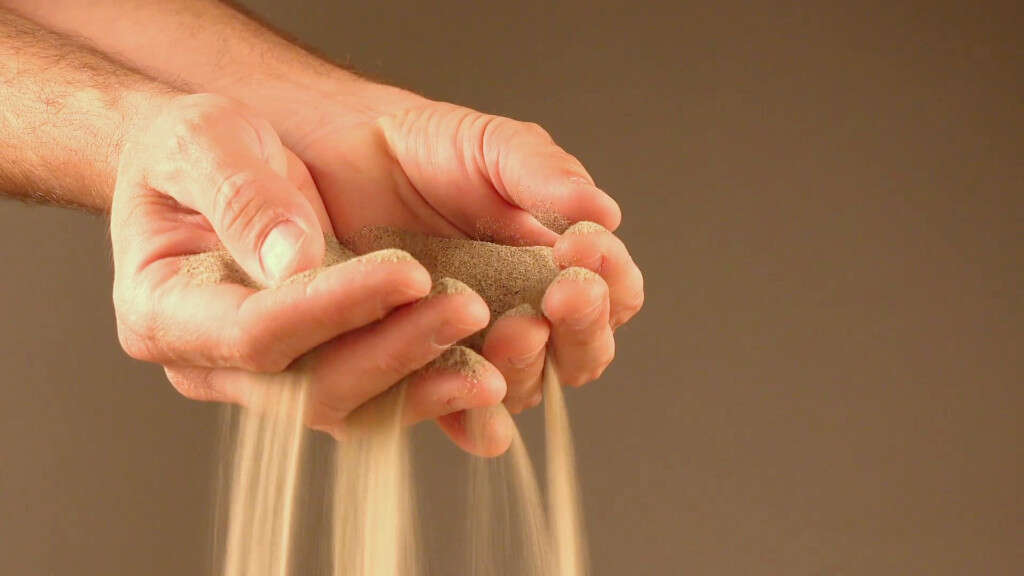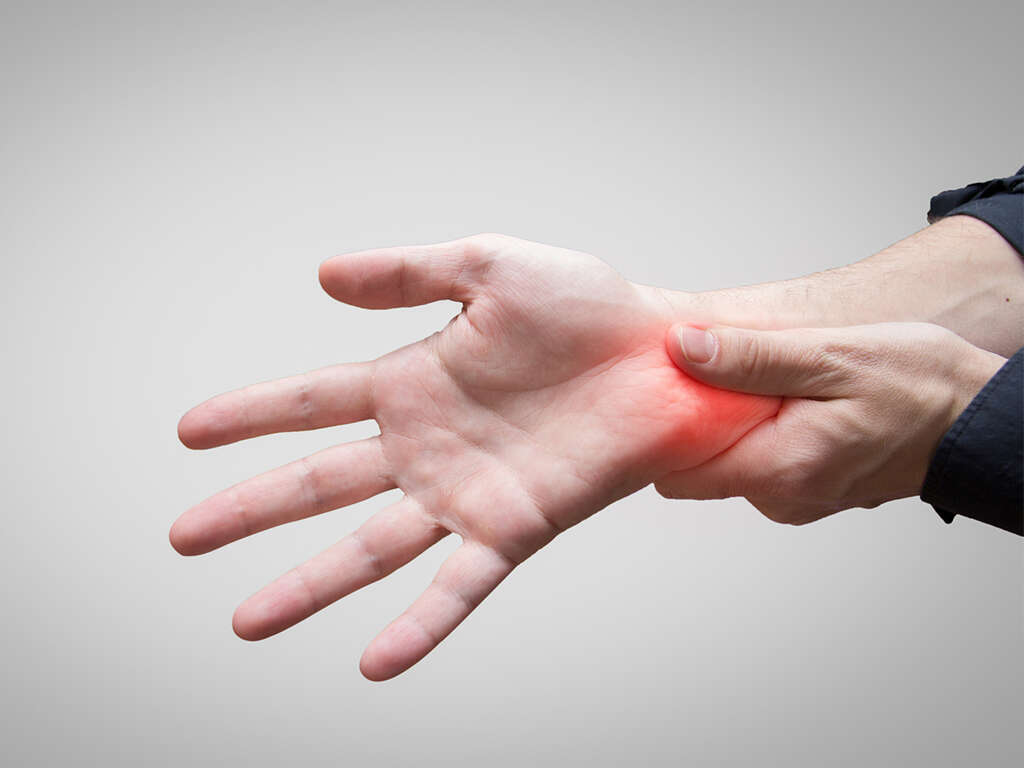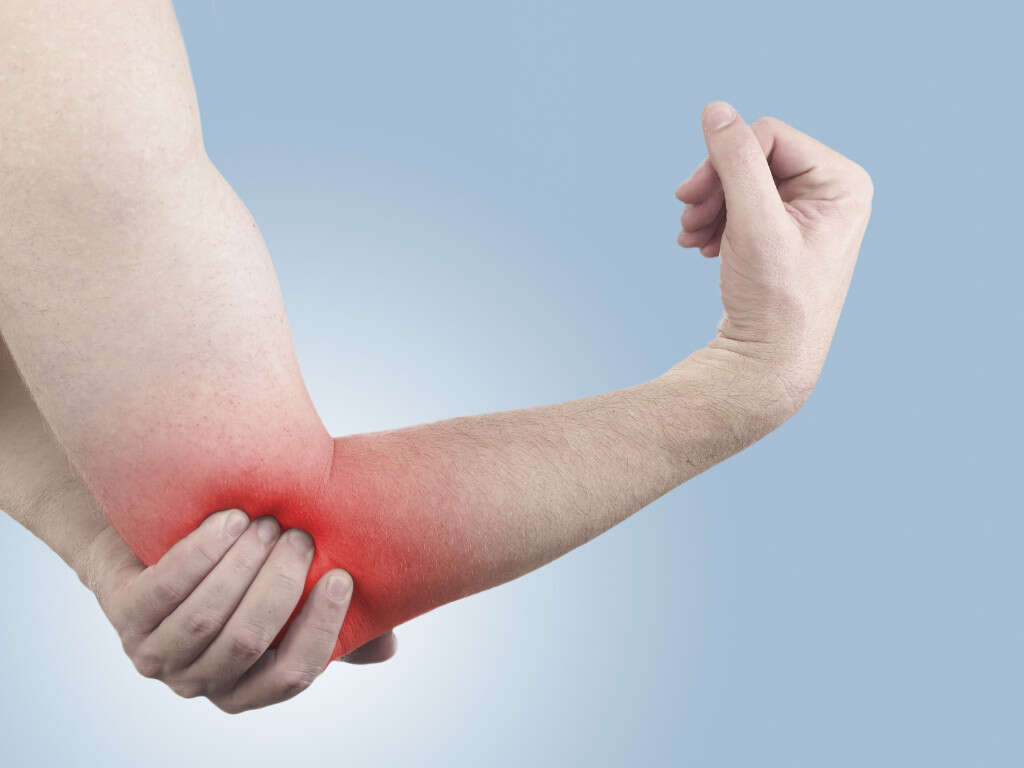10 Carpal Tunnel Symptoms
The fingers are packed with nerve endings that help people touch and feel the environment around them. Many of these nerve endings come from the median nerve which begins in the shoulder region and ends just past the wrist into the hand. At the point of the wrist is the carpal tunnel. The median nerve along with tendons pass through the carpal tunnel from the forearm into the hand.
In carpal tunnel syndrome, the median nerve can become compacted by the surrounding tendons. This places pressure on the nerve and can cause damage. This leads to a variety of symptoms, ranging from mild to severe. The condition may need to be treated with surgery. What follows are ten symptoms of carpal tunnel syndrome:

Symptom #1: Numbness and Tingling
Numbness and tingling are common symptoms of carpal tunnel syndrome. These sensations are not uncommon. Most people have experienced them after sitting awkwardly for a while, but it usually goes away. Although often harmless, numbness and tingling can be an indicator that something is wrong.
For people with carpal tunnel syndrome, numbness and tingling in the hand can range from uncomfortable to painful. It is often a mild symptom at first, but it increases in severity as the condition progresses. One distinguishing characteristic of carpal tunnel syndrome is that the small finger will not be affected since it has a different nerve than the others.

Symptom #2: Cannot Feel Hot or Cold
The pain someone feels when he or she touches something hot or cold is a defense mechanism that helps prevent serious damage to the body. For people with carpal tunnel symptom, however, it may not be possible to feel these sensations at all.
When the nerves in the hand become trapped or damaged, they can lose the ability to sense temperatures. This is potentially dangerous because it means a person may unknowingly cause terrible damage to his or her hands. Therefore, people with carpal tunnel syndrome need to take extra care when touching and handling objects.

Symptom #3: Morning Stiffness
In the mornings, the muscles and joints are stiff from being still for so long. Stiff muscles are usually only temporary, though, and after a little stretching and moving about, our muscles are typically able to function normally.
However, people with carpal tunnel syndrome often find that the mobility of their hands is severely impaired in the morning. This can affect even simple tasks, such as making breakfast or brushing the teeth.

Symptom #4: Nighttime Pain
Most people are able to get the amount of sleep they need at night, but not everybody is so lucky. One symptom of carpal tunnel syndrome is pain in the hands at night. While the pain is also felt throughout the day, sufferers of carpal tunnel syndrome report that the pain is worse at night.
The pain is often severe enough to wake up the patient. This can obviously negatively affect sleeping patterns and thus significantly impact one’s quality of life.

Symptom #5: Difficulty Holding Objects
People tend to take the hands for granted, but they use them extensively every day. They help people pick up heavy objects as well as handle delicate items. People can perform the most intricate tasks without even thinking about it, but this can become all but impossible for people with carpal tunnel syndrome.
Carpal tunnel syndrome affects the muscles that move the fingers and the thumb. Consequently, even grasping something can become difficult. People with carpal tunnel syndrome might sometimes lose control suddenly, causing them to drop whatever they are holding at the time. The condition makes performing simple tasks challenging. It may even affect a person’s ability to look after oneself.

Symptom #6: Weakness
Muscles within the hand that are supplied by the median nerve may become weak with carpal tunnel syndrome. The median nerve also supplies some muscles in the forearm. These forearm muscles help operate the hands. Carpal tunnel syndrome will not cause weakness of the forearm muscles but if the nerve is injured higher up in the arm then these muscles could also be affected.
With the onset of carpal tunnel syndrome the strength in the hands can be lost. This loss of strength can be mild at first, but it slowly worsens as the condition progresses. If the hands are weak, even everyday activities become increasingly hard to do. People with certain jobs find they are unable to work, and household chores become more difficult. People with carpal tunnel syndrome may even become dependent on others.

Symptom #7: Swollen Fingers Sensation
The nerves play an important role in the body because they help the body detect what is in the environment and send messages back to the brain. Sometimes, though, these messages can get mixed up, causing people to feel things that are not there. When the nerves in the fingers become trapped or damaged because of carpal tunnel syndrome, it might feel as though the fingers are swollen even when they are not.
This can limit dexterity considerably. This makes performing more delicate tasks harder than usual. (Even buttoning a shirt can become a monumental task.) That being said, true swelling of the hands and fingers are both a cause and symptom of carpal tunnel syndrome as well.

Symptom #8: Itching
Itching is a useful sensation because it brings attention to something that is irritating the skin. However, in carpal tunnel syndrome, the itching can occur for no apparent reason. People with carpal tunnel symptom can feel as though their hands and fingers are constantly itchy.
The symptom is a result of the median nerve being compressed within the carpal tunnel. The sensation is often persistent and can be quite difficult to live with.

Symptom #9: Burning Sensation
Nerves help people sense the environment around them. However, if the nerve signals get mixed, then people might begin to experience sensations for no apparent reason. For example, carpal tunnel syndrome can cause someone to feel a burning sensation even when there is nothing hot present.
This sensation often occurs when the hand has been kept in the same position for a prolonged period of time, such as while a person is sleeping. The sensation may cause the person to wake up. Some have described the sensation as an electric shock that can be felt in the forearms as well as the hands and fingers.

Symptom #10: Sleeping Hands
A numbness or tingling sensation sometimes means a part of the body has “fallen asleep.” It feels as though that part of the body doesn’t want to move or do anything at all. It is usually a result of sitting or lying awkwardly, and the sensation will usually go away shortly after resuming a more suitable position.
One symptom of carpal tunnel syndrome is the hands seem to fall asleep and are unresponsive. The normal response is to shake the hands in order to “wake them up” which often helps. Shaking the hands is a hallmark sign of carpal tunnel syndrome.











